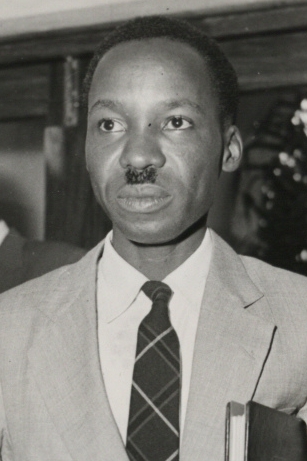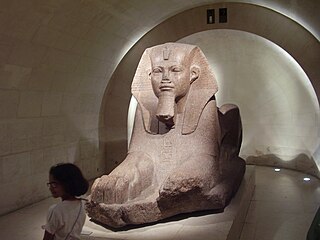
Maasai Mara, also sometimes spelled Masai Mara and locally known simply as The Mara, is a large national game reserve in Narok, Kenya, contiguous with the Serengeti National Park in Tanzania. It is named in honor of the Maasai people, the ancestral inhabitants of the area, who migrated to the area from the Nile Basin. Their description of the area when looked at from afar: "Mara" means "spotted" in the local Maasai language, due to the many short bushy trees which dot the landscape.

The Maasai are a Nilotic ethnic group inhabiting northern, central and southern Kenya and northern Tanzania. They are among the best-known local populations internationally due to their residence near the many game parks of the African Great Lakes and their distinctive customs and dress. The Maasai speak the Maa language, a member of the Nilotic language family that is related to the Dinka, Kalenjin and Nuer languages. Except for some elders living in rural areas, most Maasai people speak the official languages of Kenya and Tanzania, Swahili and English. The Maasai population has been reported as numbering 1,189,522 in Kenya in the 2019 census, compared to 377,089 in the 1989 census, though many Maasai view the census as government meddling and therefore either refuse to participate or actively provide false information.

Ecotourism is a form of tourism marketed as "responsible" travel to natural areas, conserving the environment, and improving the well-being of the local people. The stated purpose may be to educate the traveler, to provide funds for ecological conservation, to directly benefit the economic development and political empowerment of local communities, or to foster respect for different cultures and for human rights.

African socialism or Afrosocialism is a belief in sharing economic resources in a traditional African way, as distinct from classical socialism. Many African politicians of the 1950s and 1960s professed their support for African socialism, although definitions and interpretations of this term varied considerably. These politicians include Julius Nyerere of Tanzania, Kwame Nkrumah of Ghana, and Modibo Keita of Mali, among others.

The Goldman Environmental Prize is a prize awarded annually to grassroots environmental activists, one from each of the world's six geographic regions: Africa, Asia, Europe, Islands and Island Nations, North America, and South and Central America. The award is given by the Goldman Environmental Foundation headquartered in San Francisco, California. It is also called the Green Nobel.

The Lenca, also known as Lepa Wiran, meaning “Jaguar People” or “People of The Jaguar” are an Indigenous people from present day southwest Honduras and eastern El Salvador in Central America. They speak various dialects of the Lenca language such as Chilanga, Putun (Potón), and Kotik. Although the Lenca speak different dialects, they’ve always understood and coexisted with each other. In Honduras, the Lenca are the largest tribal group, with an estimated population of more than 450,000.

The Cofan people are an indigenous people native to Sucumbíos Province northeast Ecuador and to southern Colombia, between the Guamués River and the Aguarico River. Their total population is now only about 1,500 to 2,100 people, down from approximately 15,000 in the mid-16th century, when the Spanish crushed their ancient civilization, of which there are still some archeological remains. They speak the Cofán language or A'ingae. The ancestral land, community health and social cohesion of Cofan communities in Ecuador has been severely damaged by several decades of oil drilling. However, reorganization, campaigning for land rights, and direct action against encroaching oil installations have provided a modicum of stability. Major settlements include Sinangué, Dovuno, Dureno and Zábalo, the latter of which has retained a much more extensive land base.

Ujamaa was a socialist ideology that formed the basis of Julius Nyerere's social and economic development policies in Tanzania after it gained independence from Britain in 1961.
The Sonjo or Batemi) are a Bantu ethnic group from northern Ngorongoro District of Arusha Region in Tanzania.
Sophia Rabliauskas is an environmental activist and member of the Poplar River First Nation in Manitoba, Canada. She is known for her efforts to successfully secure protection of two million acres (8,000 km2) of undisturbed forests in the Boreal region of Manitoba, for which she was awarded the Goldman Environmental Prize in 2007. She has since led community members in the creation of the first Asatiwisipe Aki Lands Management Plan, detailing plans for the sustainable management of Poplar River's natural resources. Rabliauskas was decorated Member of the Order of Manitoba in 2008. She is currently working to recognize over 43,000 km2 of boreal forest as a UNESCO World Heritage Site.
Jean La Rose is an Arawak environmentalist and indigenous rights activist in Guyana. She was awarded the Goldman Environmental Prize in 2002 for her work to halt mining in their territories, to secure inhabitants full rights to traditional lands, and to save Guyana's forests.
Conservation refugees are people who are displaced from their native lands when conservation areas, such as parks and other protected areas, are created.
Traditional ecological knowledge (TEK) describes indigenous and other traditional knowledge of local resources. As a field of study in Northern American anthropology, TEK refers to "a cumulative body of knowledge, belief, and practice, evolving by accumulation of TEK and handed down through generations through traditional songs, stories and beliefs. It is concerned with the relationship of living beings with their traditional groups and with their environment." Indigenous knowledge is not a universal concept among various societies, but is referred to a system of knowledge traditions or practices that are heavily dependent on "place". Such knowledge is used in natural resource management as a substitute for baseline environmental data in cases where there is little recorded scientific data, or may complement Western scientific methods of ecological management.

Heritage commodification is the process by which cultural themes and expressions come to be evaluated primarily in terms of their exchange value, specifically within the context of cultural tourism. These cultural expressions and aspects of heritage become "cultural goods," transformed into commodities to be bought, sold and profited from in the heritage tourism industry. In the context of modern globalization, complex and often contradictory layers of meaning are produced in local societies, and the marketing of one's cultural expressions can degrade a particular culture while simultaneously assisting in its integration into the global economy. The repatriation of profits, or "leakage", that occurs with the influx of tourist capital into a heritage tourist site is a crucial part of any sustainable development that can be considered beneficial to local communities. Modern heritage tourism reproduces an economic dynamic that is dependent upon capital from tourists and corporations in creating sustained viability. Tourism is often directly tied to economic development, so many populations see globalization as providing increased access to vital medical services and important commodities.
The Indigenous Environmental Network (IEN) is a coalition of indigenous, grassroots environmental justice activists, primarily based in the United States. Group members have represented Native American concerns at international events such as the United Nations Climate Change conferences in Copenhagen (2009) and Paris (2016). IEN organizes an annual conference to discuss proposed goals and projects for the coming year; each year the conference is held in a different indigenous nation. The network emphasizes environmental protection as a form of spiritual activism. IEN received attention in the news as a major organizer of the fight against the Keystone Pipeline and the Dakota Access Pipeline in the Dakota Access Pipeline protests.

Water protectors are activists, organizers, and cultural workers focused on the defense of the world's water and water systems. The water protector name, analysis and style of activism arose from Indigenous communities in North America during the Dakota Access Pipeline protests at the Standing Rock Reservation, which began with an encampment on LaDonna Brave Bull Allard's land in April, 2016.

A land defender, land protector, or environmental defender is an activist who works to protect ecosystems and the human right to a safe, healthy environment. Often, defenders are members of Indigenous communities who are protecting property rights of ancestral lands in the face of expropriation, pollution, depletion, or destruction.

Fortress conservation is a conservation model based on the belief that biodiversity protection is best achieved by creating protected areas where ecosystems can function in isolation from human disturbance. Its implementation has been criticized for human rights abuses against indigenous inhabitants when creating and maintaining protected areas.
Alexandra Narváez Trujillo is an Ecuadorian scientist and Indigenous leader who advocates for the protection of her community's lands and cultures. She is a professor at the School of Biological Sciences at the Pontifical Catholic University of Ecuador, where she has conducted research on the bioactivity of Ecuadorian fungal endophytes. In addition to her scientific career, Narváez is an Indigenous leader and activist in Ecuador, and has played a crucial role in her community's efforts to defend their rights to land and cultural survival in the Amazon rainforest. She has received numerous awards and honors for her contributions to science and Indigenous activism, including the 2022 Goldman Environmental Prize.
Paul Sein Twa is a Karen environmentalist and indigenous activist from Myanmar who works to preserve the culture and environment of the Salween River basin. He co-founded the Karen Environmental and Social Action Network (KESAN) in 2001 to help Karen indigenous communities the preservation and protection of their land and heritage. He received the Goldman Environmental Prize in 2020 for his efforts.












